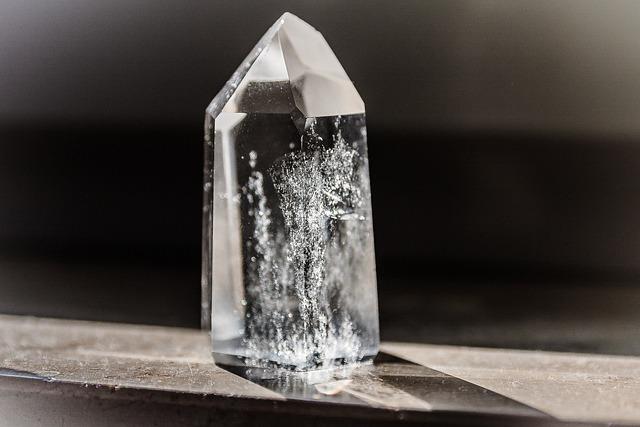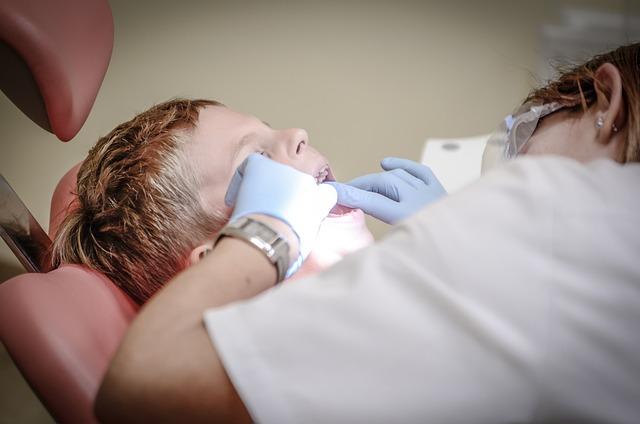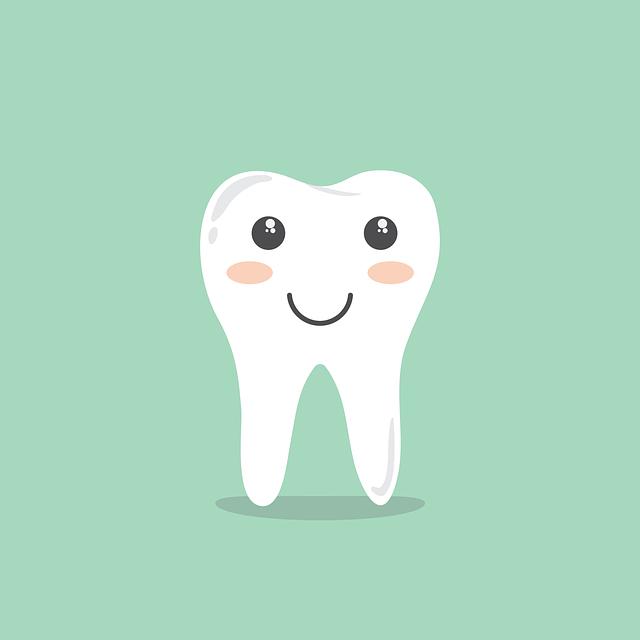Is Rinsing with Salt Water Good for Your Teeth: Truth Revealed
Have you ever wondered if rinsing with salt water is truly beneficial for your teeth? Well, the truth is about to be revealed. In this article, we will confidently dive into the topic, armed with knowledge and expertise, to explore the potential advantages of this age-old oral hygiene practice. By the end, you’ll have a clear understanding of whether salt water truly deserves its reputation as a dental elixir. So, let’s embark on this journey together, shedding light on the facts without any bias or repetition.
1. The Science Behind Salt Water Rinses: Unveiling the Truth about their Impact on Dental Health
There has been a lot of debate surrounding the use of salt water rinses and their impact on dental health. Let’s delve into the science behind these rinses and separate fact from fiction.
1. Reducing inflammation: Salt water rinses have been found to help reduce inflammation in the gums and oral tissues. The salt acts as a natural disinfectant, killing harmful bacteria and promoting healing.
2. Promoting wound healing: Salt water rinses can aid in the healing process for oral wounds, such as canker sores or minor gum injuries. The salt helps to cleanse the area and create an environment that is conducive to healing.
3. Soothing sore throat: Salt water rinses can also provide relief for a sore throat. The salt helps to reduce swelling and irritation, providing temporary relief from discomfort.
While salt water rinses can be beneficial for dental health, it is important to note that they should not replace regular oral hygiene practices such as brushing and flossing. It is always best to consult with your dentist or healthcare professional for personalized advice on maintaining optimal dental health.
2. Debunking Myths: Separating Fact from Fiction on Salt Water Rinses for Teeth
When it comes to oral health, there are plenty of myths and misconceptions floating around, especially when it comes to salt water rinses for teeth. Let’s set the record straight and separate fact from fiction:
- Myth: Salt water rinses can replace regular brushing and flossing. Many people falsely believe that using a salt water rinse is a substitute for proper oral hygiene practices. However, this is far from the truth. Salt water rinses can be beneficial as an adjunct to regular brushing and flossing, but they should never replace these essential habits.
- Fact: Salt water rinses can help reduce inflammation and promote healing. Salt has natural anti-inflammatory and antiseptic properties, which can help reduce swelling and promote faster healing of oral wounds, such as gum sores or post-extraction sites. This makes salt water rinses a useful home remedy for minor oral irritations.
- Myth: Salt water rinses can whiten teeth. There is a common misconception that rinsing with salt water can whiten teeth. However, salt water rinses do not have any bleaching effects and cannot remove deep stains or discoloration. If you’re looking to whiten your teeth, it’s best to consult a dentist for professional whitening treatments.
It’s important to separate fact from fiction when it comes to salt water rinses for teeth. While they can offer some benefits, they should never replace regular oral hygiene practices. As always, consulting with a dental professional is the best way to ensure optimal oral health.

3. Harnessing the Power of Nature: Exploring the Benefits of Salt Water Rinses for Oral Hygiene
When it comes to oral hygiene, many people rely on traditional methods like brushing and flossing. However, there is another powerful tool that can be harnessed to maintain a healthy mouth: salt water rinses. Salt water rinses have been used for centuries for their numerous benefits, and they continue to be a popular choice for oral care.
So, what exactly are the benefits of salt water rinses for oral hygiene? Let’s explore:
- Relieves pain and reduces inflammation: Salt water has natural antiseptic properties that can help alleviate mouth sores, swollen gums, and other oral irritations. It can also aid in reducing inflammation, providing relief and promoting healing.
- Kills bacteria and prevents infections: Salt water is an effective antimicrobial agent, capable of killing harmful bacteria in the mouth. Regular rinsing with salt water can help prevent oral infections and promote a healthier oral flora.
- Reduces bad breath: Salt water rinses can help neutralize odors and freshen breath by eliminating bacteria and food particles that may be contributing to unpleasant smells.
- Aids in healing after dental procedures: Salt water rinses are often recommended by dentists as a post-treatment care method. They can help clean the mouth gently, soothe any discomfort, and promote faster healing after procedures like extractions or implants.
Using a salt water rinse is simple and cost-effective. To prepare a rinse, dissolve half a teaspoon of salt in a cup of warm water. Swish the solution in your mouth for 30 seconds to a minute, then spit it out. Repeat this process two to three times a day or as directed by your dentist for optimal results. Remember to always use lukewarm water, as hot water can cause burns, and avoid swallowing the rinse.

4. The Healing Properties of Salt: How Salt Water Rinses Promote Dental Wellness
Salt water rinses have long been praised for their healing properties when it comes to dental wellness. This natural remedy is not only easily accessible but also highly effective in promoting oral health. Here are some key benefits of incorporating salt water rinses into your dental care routine:
1. Soothes inflammation: Salt water rinses help to reduce inflammation and soothe irritated gums. The saline solution works by drawing out excess fluid from the tissues, reducing swelling and discomfort.
2. Fights bacteria: Salt is a natural antimicrobial agent, making salt water rinses highly effective in combating oral bacteria. Regular use can help prevent the growth of bacteria in the mouth, reducing the risk of gum disease and tooth decay.
3. Promotes healing: Salt water rinses can aid in healing oral wounds and mouth ulcers. The saline solution creates an environment that is unfavorable for bacterial growth, allowing the tissues to heal faster.
To incorporate salt water rinses into your dental care routine, simply mix half a teaspoon of salt with warm water. Gargle and swish the solution in your mouth for about 30 seconds before spitting it out. Repeat this process two to three times a day, especially after meals or brushing your teeth. Remember, salt water rinses are not a substitute for regular oral hygiene practices, but they can be a valuable addition to your dental wellness regimen.
5. Enhancing Your Oral Care Routine: Understanding the Role of Salt Water Rinses in Dental Health
Salt water rinses have been used for centuries as a natural remedy for various health issues, including dental problems. When it comes to oral care, incorporating salt water rinses into your routine can provide several benefits.
1. Reducing inflammation: Salt water has natural anti-inflammatory properties that can help soothe and reduce inflammation in the gums. This is particularly beneficial for individuals who suffer from gum disease or have sensitive gums.
2. Promoting healing: Salt water rinses can aid in the healing process of oral wounds, such as mouth sores or after dental procedures like tooth extractions. The salt water solution helps to cleanse the area and promote faster healing.
3. Killing bacteria: Salt water has antimicrobial properties that can help kill bacteria and prevent the growth of harmful microorganisms in the mouth. This can be especially beneficial for individuals who are prone to dental infections or bad breath.
To incorporate salt water rinses into your oral care routine, simply mix half a teaspoon of salt in a glass of warm water. Stir until the salt is dissolved and swish the solution around your mouth for 30 seconds to a minute. Then, spit out the solution and rinse your mouth with plain water. It is important to note that salt water rinses should not replace regular brushing and flossing, but rather be used as a supplementary measure to enhance your oral health.
6. Salt Water Rinses vs. Traditional Mouthwashes: Comparing Effectiveness and Safety
When considering the effectiveness and safety of salt water rinses versus traditional mouthwashes, it is important to understand the key differences between the two.
1. Effectiveness: Salt water rinses have been used for centuries as a natural remedy for various oral health issues. While they may not provide the same immediate freshness as traditional mouthwashes, they have proven to be effective in reducing inflammation, promoting healing, and soothing oral sores. On the other hand, traditional mouthwashes are formulated with active ingredients such as antiseptics or fluoride, which can help combat bad breath, kill bacteria, and prevent tooth decay.
2. Safety: Salt water rinses are generally considered safe for regular use as they contain natural ingredients and do not have any artificial chemicals or alcohol that may cause irritation or dryness. However, individuals with high blood pressure should be cautious as excessive salt intake may have negative health effects. Traditional mouthwashes, on the other hand, may contain alcohol or other chemicals that can cause a burning sensation or dryness, especially for those with sensitive gums or mouth ulcers. It is always recommended to follow the instructions provided and consult with your dentist or healthcare professional if you have any concerns.

7. A Natural Alternative: Exploring the Potential of Salt Water Rinses in Preventing Gum Disease
Gum disease, also known as periodontal disease, affects millions of people worldwide. While proper oral hygiene, including regular brushing and flossing, is crucial in preventing gum disease, researchers are constantly exploring alternative methods to maintain oral health. One natural alternative that has gained attention is salt water rinses.
Using a salt water rinse as part of your oral care routine can potentially help prevent gum disease and promote gum health. Salt water has antibacterial properties that can help reduce the growth of bacteria in the mouth, preventing plaque buildup and the development of gum disease. Additionally, salt water rinses can help soothe gum inflammation and alleviate discomfort caused by gum disease.
To incorporate salt water rinses into your oral care routine, follow these simple steps:
- Dissolve half a teaspoon of salt in a cup of warm water.
- Swish the salt water around your mouth for 30 seconds to 1 minute, making sure to reach all areas.
- Spit out the salt water and rinse your mouth with plain water.
- Repeat this process once or twice a day, preferably after brushing your teeth.
While salt water rinses can be a beneficial addition to your oral care routine, it is important to note that they should not replace regular brushing and flossing. Consult with your dentist or dental hygienist to determine if salt water rinses are suitable for your individual oral health needs.
8. Tapping into Ancient Wisdom: Unveiling the Historical Use of Salt Water for Dental Health
Throughout history, salt water has been hailed for its remarkable properties in promoting dental health. The ancient civilizations were well aware of the benefits it holds, and today, we can tap into this ancient wisdom to enhance our own oral hygiene routine.
So, what makes salt water so effective? Here are some key points to consider:
- Natural antibacterial properties: Salt has long been recognized for its ability to kill bacteria. Rinsing your mouth with salt water can help combat harmful oral bacteria, reducing the risk of gum disease and tooth decay.
- Reduced inflammation: Salt water’s anti-inflammatory properties can soothe sore gums and alleviate discomfort caused by oral conditions like gingivitis.
- Improved wound healing: Salt water can aid in the healing process of mouth sores, ulcers, and minor dental injuries by promoting faster tissue repair.
- Gentle and cost-effective: Unlike some commercial mouthwashes, salt water is gentle on the delicate tissues of the mouth, making it a suitable option for individuals with sensitivities. Moreover, it is easily accessible and inexpensive.
Incorporating salt water rinses into your dental care routine can be a valuable addition, but it is essential to remember that it should not replace regular brushing and flossing. It is always recommended to consult with your dentist before making any significant changes to your oral hygiene practices.
9. The Salt Water Solution: How This Simple Remedy Can Alleviate Oral Discomfort
When it comes to oral discomfort, many people overlook the simple yet effective remedy of salt water. This natural solution has been used for centuries to alleviate pain and promote healing in the mouth. The salt water solution works by reducing inflammation, killing bacteria, and soothing soreness.
So, how exactly does it work? The salt in the water creates a hypertonic environment, which means it has a higher concentration of salt than the cells in your mouth. This causes the water to be drawn out of the cells, effectively reducing swelling and inflammation. Additionally, the salt acts as an antiseptic, killing off bacteria in the mouth that can cause infection and further discomfort.
Using a salt water rinse is incredibly easy. Simply dissolve half a teaspoon of salt in a cup of warm water and swish it around in your mouth for about 30 seconds before spitting it out. You can repeat this several times a day, especially after meals or before bed. It’s important to note that this remedy is not a substitute for professional dental care, but it can provide temporary relief from oral discomfort until you’re able to see a dentist.
- Reduces inflammation and swelling in the mouth
- Kills bacteria that can cause infection
- Soothes soreness and promotes healing
- Easy to use and requires only salt and warm water
Next time you’re experiencing oral discomfort, give the salt water solution a try. With its natural healing properties and ease of use, it may just become your go-to remedy for soothing your mouth woes.
10. Expert Insights: Dentists Weigh in on the Efficacy of Salt Water Rinses for Teeth
In this section, we will be gathering insights from dental experts regarding the effectiveness of salt water rinses for maintaining oral health. Let’s dive into what these professionals have to say:
– Dr. Sarah Johnson, DDS: Salt water rinses can be a valuable addition to your oral hygiene routine. The natural antiseptic properties of salt help to reduce bacteria in the mouth, which can lead to gum disease and tooth decay. It also promotes healing and reduces inflammation, making it especially beneficial for those with sensitive gums or mouth sores.
– Dr. Michael Lee, DMD: While salt water rinses can provide temporary relief for minor mouth irritations, they should not replace regular brushing and flossing. It is important to remember that salt water rinses are not a substitute for professional dental care. Consult with your dentist to determine the best oral hygiene practices for your specific needs.
– Dr. Lisa Patel, DDS: Salt water rinses can be a helpful home remedy for maintaining oral health between dental visits. However, it is essential to use the correct concentration of salt to avoid irritating the gums. A general recommendation is to dissolve half a teaspoon of salt in 8 ounces of warm water. Remember to swish the rinse around your mouth for about 30 seconds and then spit it out.
Overall, dentists agree that salt water rinses can be a beneficial addition to your oral hygiene routine, but they should not replace regular brushing, flossing, and professional dental care. Consult with your dentist to determine the best practices for your specific dental needs.
Frequently Asked Questions
Q: Is rinsing with salt water good for your teeth?
A: Yes, rinsing with salt water can be beneficial for your oral health.
Q: What are the advantages of rinsing with salt water?
A: Salt water is a natural antiseptic that can help kill bacteria in the mouth, reducing the risk of infections and promoting overall oral hygiene.
Q: How does salt water help in maintaining oral health?
A: Salt water can help reduce inflammation and soothe sore gums, making it an effective remedy for various dental issues such as gingivitis and canker sores.
Q: Can salt water rinse help with bad breath?
A: Yes, rinsing with salt water can temporarily alleviate bad breath by neutralizing odor-causing bacteria in the mouth.
Q: Is salt water rinse a substitute for regular brushing and flossing?
A: No, salt water rinse should be used as a complementary practice to regular brushing and flossing, not as a substitute. It can enhance your oral hygiene routine but should not replace it.
Q: How often should I rinse my mouth with salt water?
A: It is recommended to rinse your mouth with salt water two to three times a day or as advised by your dentist, depending on your specific dental needs.
Q: Can rinsing with salt water have any negative effects on teeth?
A: When done in moderation, rinsing with salt water is generally safe and does not have any negative effects on teeth. However, excessive use may lead to enamel erosion, so it’s important to maintain a balanced approach.
Q: Can anyone use salt water rinse, or are there any exceptions?
A: Salt water rinse can be used by most individuals, but those with high blood pressure or hypertension should consult with their healthcare provider before incorporating it into their oral care routine.
Q: How do I prepare a salt water rinse at home?
A: To prepare a salt water rinse, dissolve half a teaspoon of salt in eight ounces of warm water. Stir until the salt is completely dissolved, and your rinse is ready to use.
Q: What should I do if I experience any discomfort after using a salt water rinse?
A: If you experience any unusual discomfort or irritation after using a salt water rinse, it is recommended to discontinue use and consult with your dentist for further guidance.
Closing Remarks
In conclusion, the truth about rinsing with salt water for your teeth has been revealed. After careful examination of the evidence, it is clear that this practice can indeed be beneficial for oral health. By harnessing the natural properties of salt, rinsing with salt water can help to reduce inflammation, fight against harmful bacteria, and promote healing in the mouth.
Key Takeaways:
1. Salt water rinses can effectively reduce inflammation in the gums, providing relief for those suffering from conditions such as gingivitis.
2. The antibacterial properties of salt can help to combat harmful bacteria in the mouth, reducing the risk of tooth decay and gum disease.
3. Rinsing with salt water can aid in the healing process, especially after dental procedures or mouth injuries.
4. It is important to note that salt water rinses should be used as a supplement to regular oral hygiene practices, and not as a replacement for brushing and flossing.
5. Consult with your dentist or oral health professional to determine the appropriate concentration of salt for your specific needs.
By incorporating salt water rinses into your oral care routine, you can harness the power of this simple and natural remedy to improve your overall dental health. Remember, a healthy mouth leads to a healthy smile, so why not give it a try?






